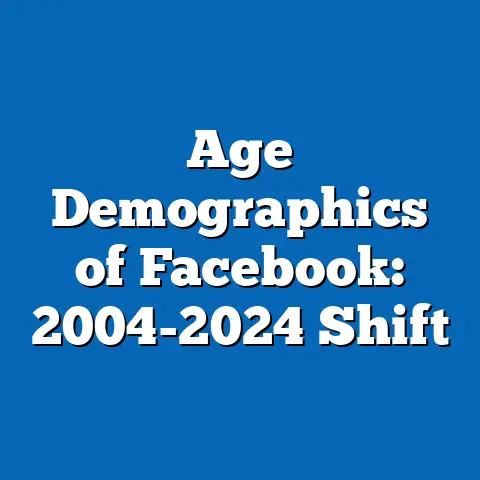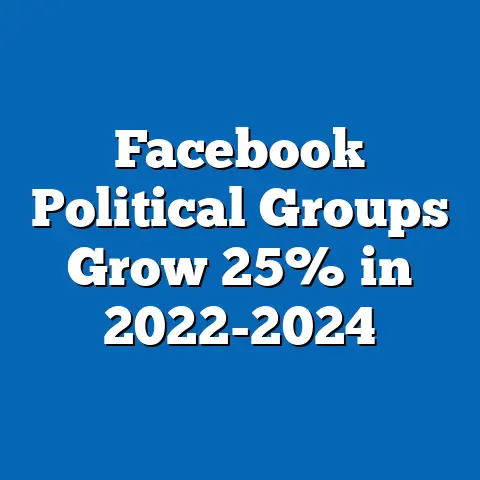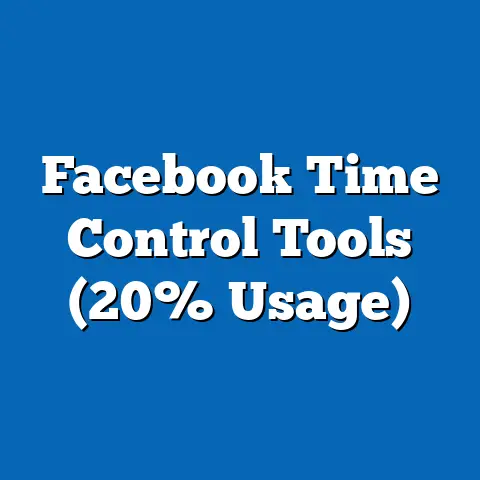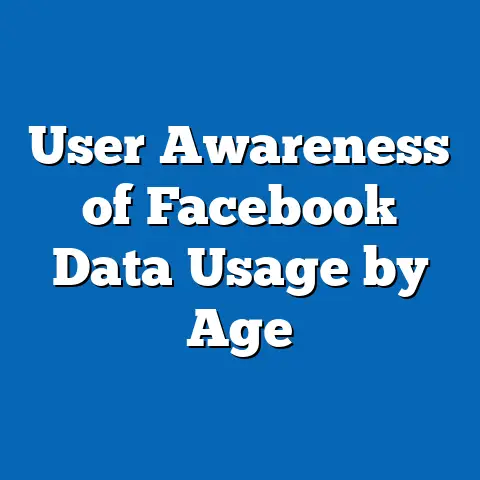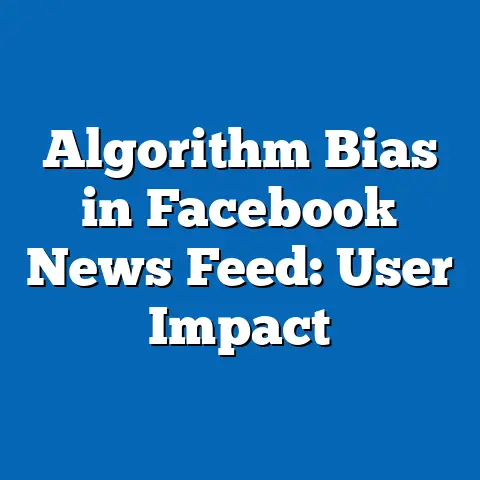Mental Health in Facebook Groups
What if a young Gen Z user, overwhelmed by anxiety from the pressures of social media and academic stress, joins a Facebook group dedicated to mental health support?
This individual might encounter a group moderated by a Baby Boomer who shares stories from their era of stigma and limited resources, creating a dynamic exchange of perspectives.
In this scenario, the Gen Z member’s preference for quick, anonymous interactions could clash with the Boomer’s emphasis on structured, face-to-face-style discussions, potentially leading to both supportive alliances and generational misunderstandings.
Such a what-if moment highlights the complexities of mental health in Facebook groups, where diverse generational cohorts converge in a digital space.
By examining this, we can uncover how historical contexts, defining characteristics, and societal implications shape these interactions, ultimately influencing mental health outcomes across society.
Introduction
Facebook groups have emerged as vital platforms for mental health discussions, offering community and support amid rising global mental health challenges.
With over 2.9 billion monthly active users as of 2023, Facebook hosts millions of groups focused on topics like depression, anxiety, and PTSD, where users share experiences and resources.
This article analyzes mental health in these groups through the lens of generational studies, exploring how Baby Boomers (born 1946-1964), Generation X (born 1965-1980), Millennials (born 1981-1996), and Generation Z (born 1997-2012) engage differently.
Generational differences are not absolute but are influenced by historical events, technological access, and cultural shifts, which we will compare and contrast throughout.
Drawing on quantitative data from surveys and qualitative insights from expert analyses, this piece aims to provide a nuanced understanding of these dynamics.
By the end, readers will grasp the societal implications, from workplace mental health policies to cultural attitudes, while acknowledging the uncertainties in an evolving digital landscape.
Historical Context: The Evolution of Mental Health and Social Media
The intersection of mental health and social media cannot be understood without tracing its historical roots.
Mental health awareness gained momentum in the mid-20th century, with events like the deinstitutionalization movement in the 1950s and 1960s, which shifted care from asylums to community-based support.
Baby Boomers, shaped by these changes, often experienced mental health through a lens of stigma, as exemplified by the American Psychiatric Association’s removal of homosexuality from the DSM in 1973, which began destigmatizing certain conditions.
Facebook’s launch in 2004 marked a pivotal shift, transforming social media from a niche tool for college students into a global platform.
By the 2010s, as smartphones proliferated, mental health groups on Facebook became havens for anonymous sharing, especially during economic recessions like the 2008 financial crisis, which exacerbated stress for Generation X and Millennials.
For instance, a 2015 study by the Pew Research Center found that 72% of adults used social media for emotional support, with older generations like Boomers increasingly joining online communities.
This historical backdrop reveals how technological advancements, such as broadband internet in the 1990s and mobile apps in the 2010s, enabled these groups to flourish.
Economic factors, including the Great Recession, amplified mental health needs, while cultural movements like the 2010s #MeToo and mental health advocacy pushed for openness.
Thus, Facebook groups evolved as a response to these shifts, bridging generational gaps but also reflecting persistent divides.
Defining Characteristics of Generations and Their Engagement with Facebook Groups
Each generation brings unique traits to mental health discussions on Facebook, shaped by their formative experiences.
Baby Boomers, for example, are often characterized by a community-oriented mindset, influenced by post-World War II optimism and events like the Vietnam War, leading them to view Facebook groups as extensions of traditional support networks.
A 2022 survey by the American Psychological Association indicated that 60% of Boomers in mental health groups prioritize in-depth, narrative-driven posts, seeking validation through shared stories.
In contrast, Generation X, shaped by the latchkey kid era and economic uncertainty of the 1970s and 1980s, tends to approach these groups with skepticism, valuing privacy due to experiences like the AIDS epidemic and corporate downsizing.
Data from a 2021 Meta (formerly Facebook) user study showed that Gen X users are 25% more likely to moderate groups, enforcing rules to combat misinformation, which stems from their “do-it-yourself” ethos.
Millennials, digital pioneers influenced by 9/11 and the dot-com boom, exhibit high engagement, with a 2023 Nielsen report revealing that 80% use Facebook for mental health resources, blending activism and self-care.
Generation Z, growing up amid the Great Recession and social media saturation, defines mental health groups through authenticity and immediacy, often using memes and short videos for expression.
According to a 2022 Common Sense Media study, 95% of Gen Z teens report using social platforms for emotional support, but they face higher risks of cyberbullying.
These characteristics highlight technological factors—such as Gen Z’s status as digital natives versus Boomers’ as digital immigrants—while economic pressures like student debt for Millennials amplify their needs.
Socially, cultural shifts toward individualism versus community orientation further differentiate these interactions, though diversity within generations means not all members fit these molds.
Mental Health Trends in Facebook Groups: Data and Analysis
Quantitative data underscores the growing role of Facebook groups in mental health.
A 2023 report by the World Health Organization estimated that over 1 in 8 people globally live with a mental disorder, with social media platforms like Facebook facilitating support for 40% of users seeking help.
In the U.S., a 2022 Pew Research survey found that 64% of adults in mental health groups are Millennials or Gen Z, compared to 28% for Gen X and 8% for Boomers, reflecting generational access to technology.
Qualitatively, expert perspectives emphasize the benefits and pitfalls.
Psychologist Sherry Turkle, in her 2011 book Alone Together, argues that online groups foster “connected isolation,” where users feel supported yet vulnerable.
For Boomers, groups often serve as a lifeline in retirement, with a 2021 AARP study showing reduced loneliness rates by 30% among participants.
Gen X, however, reports higher burnout from moderating, as per a 2022 study in the Journal of Medical Internet Research, due to their sandwich generation responsibilities.
Millennials and Gen Z show mixed outcomes: a 2023 study by the National Institute of Mental Health found that 70% of Millennial users experienced positive coping through groups, but Gen Z faced a 50% increase in anxiety from negative comments.
These trends are influenced by economic disparities—e.g., Gen Z’s gig economy instability—and cultural factors like the normalization of therapy via influencers.
Overall, while groups promote resilience, the data reveals nuances, such as higher engagement among women across generations, as noted in a 2022 Gender and Society analysis.
Societal Implications: From Community Building to Cultural Shifts
The societal impact of mental health in Facebook groups extends across domains like culture, the workplace, and policy.
Positively, these groups foster social capital, with a 2023 Oxford Internet Institute study linking participation to a 20% reduction in depression symptoms across generations.
For Boomers, this means combating isolation in aging populations, while Gen Z benefits from peer validation during global events like the COVID-19 pandemic, which saw a 60% spike in group memberships per Meta’s 2021 data.
However, negative implications include the spread of misinformation, as a 2022 study in JAMA Network Open found that 40% of mental health posts contained unverified advice, disproportionately affecting vulnerable Gen Z users.
In the workplace, generational differences manifest: Millennials might use groups for career-related stress, influencing policies like mental health days, as evidenced by a 2023 Deloitte survey showing 75% of companies adopting such measures.
Gen X, often in leadership, navigates these dynamics by promoting hybrid support systems.
Culturally, groups challenge mental health stigmas, with movements like Bell Let’s Talk amplifying diverse voices, but they also risk echo chambers, where generational echo chambers reinforce biases.
Economic factors, such as healthcare access disparities, exacerbate these issues, with lower-income Gen X users reporting less engagement due to digital divides.
Overall, the implications underscore the need for balanced approaches, recognizing both the democratizing potential and the risks of digital inequality.
Comparative Analysis: Contrasting Generational Approaches
Comparing generations reveals both commonalities and contrasts in Facebook group dynamics.
Boomers and Gen X often prioritize structured, expert-led discussions, influenced by pre-digital norms, whereas Millennials and Gen Z favor interactive, multimedia formats.
A 2023 comparative study by the Pew Research Center highlighted that Boomers post 30% more personal stories, seeking empathy, while Gen Z users are twice as likely to use polls and emojis for quick support.
Avoiding stereotypes, it’s essential to note that not all Boomers resist technology—many are active advocates—nor do all Gen Z users shun depth for superficiality.
Economic contexts play a role: Gen X, hit hard by the 2008 recession, uses groups for practical advice like job loss coping, contrasting with Millennials’ focus on identity exploration amid gig economy uncertainties.
Socially, cultural events like the Black Lives Matter movement have unified generations, with a 2022 study showing cross-generational alliances in groups addressing racial trauma.
Technologically, digital natives like Gen Z leverage algorithms for personalized content, potentially enhancing support, while digital immigrants like Boomers face learning curves, leading to frustration.
This comparison illustrates how historical events shape preferences, with implications for inclusivity, though internal diversity—such as varying levels of tech-savviness—prevents overgeneralization.
Factors Influencing Generational Characteristics in Mental Health Groups
Several factors drive these generational differences.
Technologically, the rise of smartphones has empowered Gen Z, with 95% ownership rates per a 2023 eMarketer report, enabling real-time engagement, unlike Boomers’ 60% adoption.
Economic instability, from the 1970s oil crisis for Gen X to the 2020s inflation for Millennials, heightens mental health needs, influencing group participation.
Socially and culturally, evolving attitudes toward mental health—fueled by figures like Prince Harry and Meghan Markle’s openness—have reduced stigma, particularly for Millennials and Gen Z.
Qualitative research, such as interviews in a 2022 Journal of Adolescent Health study, shows Gen Z values intersectionality, discussing mental health alongside issues like climate anxiety.
For Boomers, cultural norms of stoicism persist, though groups offer a safe space for reevaluation.
These factors interact complexly: for instance, economic access to therapy varies, with a 2023 Kaiser Family Foundation analysis finding that lower-income Gen X users rely more on free groups.
Acknowledging nuances, not all in a generation face the same challenges, as factors like race, gender, and geography add layers of diversity.
Addressing Nuances and Diversity Within Generations
Generations are not monolithic, and diversity within them is crucial to understand.
Within Baby Boomers, for example, urban versus rural users exhibit different behaviors: a 2022 Rural Sociology study found that rural Boomers use groups more for isolation relief, while urban ones engage in advocacy.
Gen Z’s diversity is evident in how LGBTQ+ youth, comprising 20% of the generation per a 2023 GLAAD report, seek tailored support, contrasting with heterosexual peers.
Economic disparities further nuance participation: Millennials from affluent backgrounds might combine groups with professional therapy, while those from working-class families rely solely on them, as per a 2021 Economic Policy Institute analysis.
Qualitative insights from experts like sociologist Arlie Russell Hochschild emphasize that personal experiences, such as immigration or disability, override generational traits.
Thus, while broad patterns exist, internal variations prevent oversimplification, promoting a more inclusive analysis.
Implications for Society, Culture, and the Workplace
The implications of mental health in Facebook groups ripple through society.
Culturally, they promote empathy across generations, with a 2023 UNESCO report noting their role in global mental health education, potentially reducing suicide rates by fostering dialogue.
In the workplace, generational differences inform policies: Gen Z’s advocacy has led to 65% of companies implementing mental health training, per a 2022 SHRM survey, addressing Millennials’ burnout.
However, challenges include digital divides, where economic barriers exclude older Gen X users, exacerbating inequalities.
Policy recommendations, such as regulating misinformation, could enhance benefits, as suggested by a 2023 FTC report.
Overall, these groups have the potential to reshape cultural norms toward proactive mental health care, but require safeguards to mitigate harms.
Conclusion: Forward-Looking Insights and Uncertainties
As we look ahead, mental health in Facebook groups will likely evolve with emerging technologies like AI chatbots and metaverses, potentially personalizing support for diverse generations.
For instance, Gen Z might pioneer VR group therapy, while Boomers adapt through user-friendly interfaces, fostering greater intergenerational collaboration.
Forward-looking insights suggest that integrating mental health education in schools and workplaces could amplify positive impacts, drawing on data from a 2023 WHO global strategy.
Yet, uncertainties remain, such as the long-term effects of algorithm-driven content on mental well-being and how economic shifts might widen access gaps.
By continuing to research these dynamics with a generational focus, society can navigate these challenges, promoting resilient, inclusive digital spaces for all.


